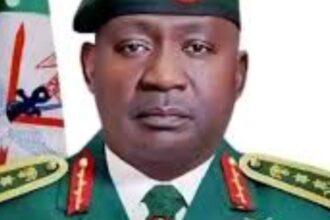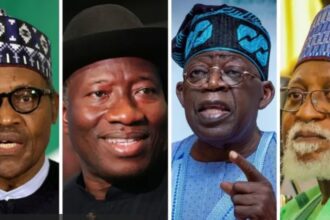BY ERNEST OSOGBUE
Over the years in our country, might has always seemed to be right, this is made manifest in our everyday life when those with loud voices shout down those whose voices are low. It is equally manifest on our roads when those with bigger cars intimidate pedestrians and those with smaller cars. What this means is that those in superior positions use their superiority to oppress those less privileged. These errant behaviors have tended to undermine our democracy and negate our laws. In every sane society, the essence of the law is to protect the weak from the strong. In our country however, this has not always been the case. The average citizen would readily tell you that the law actually protects those it should be against, while being against those it should protect. While this may not wholly be true, it is actually a pointer to how disillusioned some Nigerians are about their country
This is why the recent announcement by the minister of information and national orientation, Mohammed Idris, that the federal government of Nigeria has deemed it necessary to petition an Abuja based newspaper to the Nigerian Press Council, over a report deemed as misleading by the government needs to be viewed in its wider implications.
In the recent history of our country, this has never happened, and despite the current democratic dispensation approaching the quarter century mark, many pointers to the hangover of military dictatorship remain evident. Time was when journalists could be kidnapped gestapo style, in broad daylight and kept incommunicado without any charges being preferred against them or being brought before a court, media houses, be they radio, television or newspaper were closed down without recourse to lawful procedures. While some of these actions have abated since the advent of the current democratic dispensation, the arbitrary shutting of media houses, arrest and detention of journalists has continued by those who feel their reports are unfavorable.
All over the world, the media is seen as the fourth estate of the realm, after the executive, legislative and judicial arms of government. While not being elected or appointed, it is generally accepted that the media stands as a bridge between the government and the governed. Without the media, it would be near impossible for any government to mobilize citizens for national development, as a result, there must exist a partnership between the two for development to take place. To successfully fulfil its part of the bargain therefore, the media in general and journalists in particular, must do their jobs with the responsibility it deserves. That is why stories must be researched, verified and authenticated before going to press. Rushing to press with unverified stories may not only lead to sensational reports but could lead to unrest and possible breakdown of law and order which hamper national development. Media owners must equally live up to their responsibilities by fulfilling their obligations to staff, by paying salaries and emoluments promptly. Not meeting these obligations could expose media practitioners to manipulators and agents of destabilization.
On the part of government, it is believed that with this renewed attitude of following proper procedure as opposed to self-help and arbitrary actions, a new vista in the relationship between the media and government can be strengthened. This can be achieved when media practitioners are allowed do their jobs without fear of intimidation by government and its agents. Information with regards to the administration of our country must equally be made readily available to the media without prejudice.
While we admonish the media to do its job with utmost responsibility, we equally urge government to help make the job of the media easier. As advertisers would say, if you wink in the dark, nobody will notice, it is therefore necessary for government and its officials to see the media as a partner in progress if Nigeria is to fulfil the yearnings of its teeming citizens. Let’s hope that this current approach by government would be sustained until it becomes a norm. we do not wish to go back to the dark days of the media and the government playing cat and mouse.
It is on this premise that the action of government guided by restraint and a duty to uphold the law must be commended. Rather than wielding the big stick arbitrarily, the government found it necessary to follow the proper democratic procedure, by reporting the errant media house to the media ombudsman. We encourage government to respect the recommendation of the relevant agency when it is made available. It is in doing these that the government can help deepen our democracy and restore citizen belief in the rule of law.









